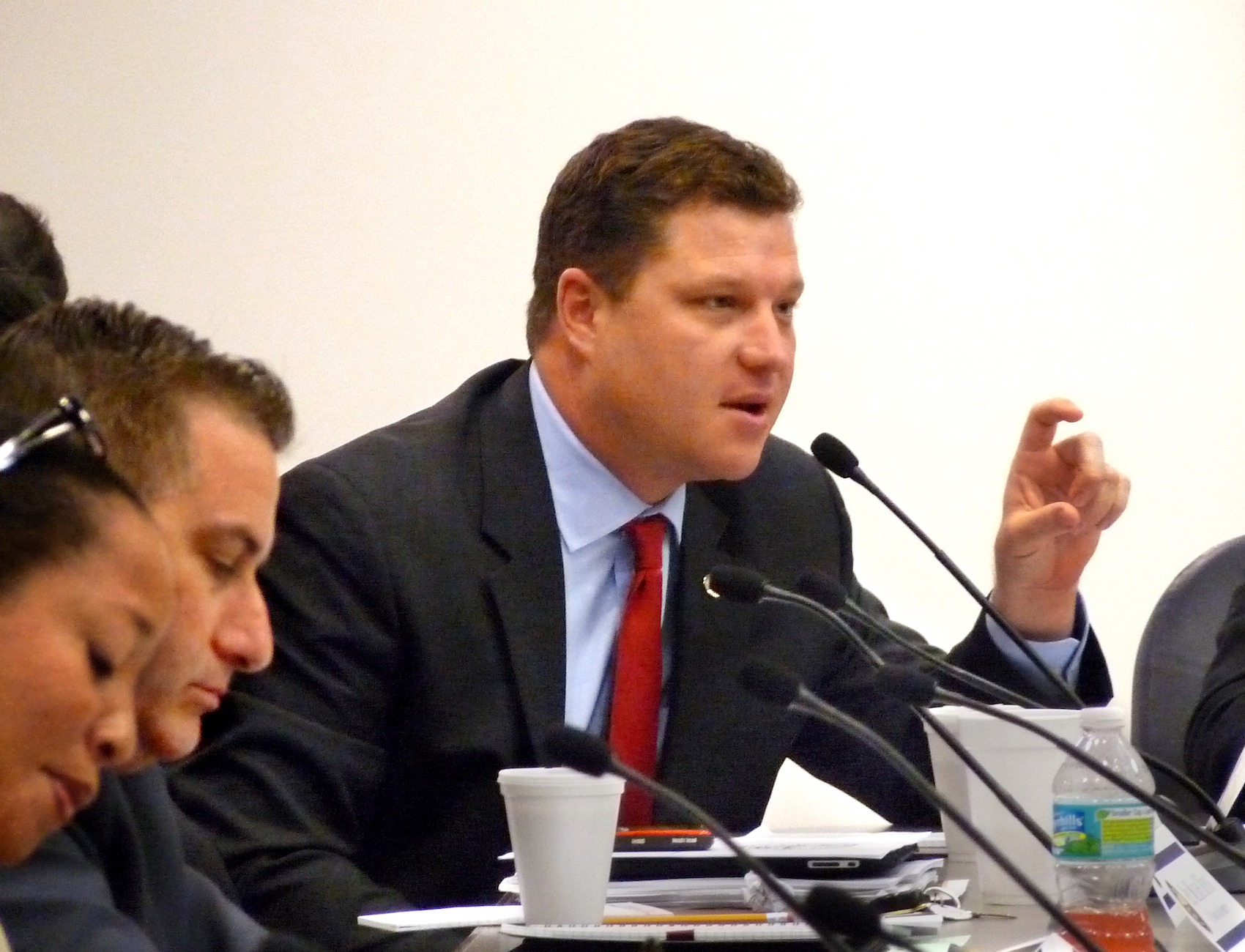A Florida Senator Wants to Exclude People With Felony Convictions From the State’s Minimum Wage Increase
It’s the latest bill in the state legislature’s long history of meddling with voter-approved amendments.

Just months ago, Florida residents overwhelmingly voted to approve Amendment 2, a ballot initiative that raised the state’s minimum wage to $15 an hour by September 2026. Today, State Senator Jeffrey Brandes of St. Petersburg—a well-connected veteran of the Florida GOP—filed SJR 854, a measure that will, if enacted, exempt some Floridians from the increased minimum-wage protection.
The Florida legislature has long treated grassroots ballot initiatives with open contempt. In 2017, after more than 70 percent of state voters elected to legalize medical marijuana, state lawmakers responded by temporarily making it illegal to smoke medicinal weed. In 2018, when a supermajority of Floridians voted to return voting rights to at least 1.4 million formerly incarcerated people, the GOP-dominated legislature passed a glorified poll tax that made sure that 800,000 of those people remained ineligible to vote. This week, the state Republican Party—dominated by pro-Trump apparatchiks and a smaller Libertarian-minded wing—has launched its plan to kneecap the minimum wage increase, which passed with over 60 percent approval.
Brandes is now proposing amending the state Constitution once more, to allow state lawmakers to “reduce the Minimum Wage rate for prisoners in the state correctional system, reduce the Minimum Wage rate for employees convicted of a felony, reduce the Minimum Wage rate for employees younger than 21 years of age, [and] reduce the Minimum Wage rate for other hard-to-hire employees …”
Given Brandes’s connections within the party, as well as the state GOP’s general antipathy toward raising the minimum wage, it’s quite likely the measure could reach voters by November. (More than 60 percent of Florida voters must approve amendments to the state Constitution for changes to take effect.) The state GOP has prioritized a number of other draconian bills, including a much-criticized proposal from Governor Ron DeSantis that would crack down on peaceful protesters and make it legal, in some cases, to run demonstrators over.
That this proposal targets both currently and formerly imprisoned people is something of a shock for those following Brandes’s career: Over the last handful of years, there has been arguably no more successful justice reform champion in Tallahassee than Brandes. He has leaned on his professed small-government Libertarian ethos to try to reform the state’s mandatory-minimum sentencing laws, force cops to get warrants before monitoring citizens’ cell phone data, push more people into pre-arrest diversion programs, and reduce the state’s reliance on cash bail. While there have certainly been Democratic members of the state legislature who have proposed justice reform measures, Brandes has been able to use his pull as a member of the state’s dominant party to pass significant reforms.
This week’s measure shows exactly how far the state will get by relying on someone like Brandes to fix its problems. What’s more, it could provide a new push for progressive members of the U.S. Congress to pass a $15 minimum wage hike, rather than leaving the matter up to individual states.
Brandes spent the day defending his bill on Twitter by claiming that lowering the minimum wage for teens or formerly incarcerated people will somehow help, rather than hurt, them. He cited multiple right- or Libertarian-leaning think tanks, which allege that minimum wage hikes would lead to a spike in unemployment for those groups. A significant amount of research contradicts those claims.
Brandes told The Appeal that he believes a lower wage for “hard-to-hire” groups would help them gain job skills before moving on to a higher-paying job. Asked directly if he believes the proposed exceptions could permanently trap the formerly incarcerated in low-paying jobs, he said he didn’t believe so.*
“This is really about allowing the legislature to offer a training wage and about recognizing that for the formerly incarcerated, it’s sometimes difficult for them to compete with much more skilled workers for jobs,” he said.
If voters pass the amendment, Brandes said he would be willing to propose a follow-up bill that would place a time limit on the “training wages.” Under that idea, “hard-to-hire” groups could only be paid less than the minimum wage for a set period of time, perhaps a year or a set amount of hours.
“The key is not to hurt them, but to help them get a leg up,” he said.
Others, however, vehemently disagree with the proposal.
“Pretty clear higher wages keep people out of prison, too,” progressive State Representative Anna Eskamani of Orlando tweeted in response to an article about the bill on Wednesday.
“…once they get a job,” Brandes replied, adding later that, in his opinion, the bill will help formerly incarcerated people get back on their feet after leaving prison.
In a text message to The Appeal, Eskamani said that instead of forcing the recently incarcerated into low-paying jobs, the state should focus on jobs training programs to help people leaving prison.
“Instead of carving out ‘hard to hire employees’ from benefiting with an increase to the minimum wage we should help hard to hire employees be hirable!” she said. “Automation is already here and yet we face many talent gaps in areas like construction and manufacturing. Let’s get folks trained and hired there, where they are needed. But hand picking select groups of people to be exempt is not to the spirit of Amendment 2, and won’t help is reducing recidivism rates either.”
*This article has been updated with quotes from State Senator Jeffrey Brandes.
